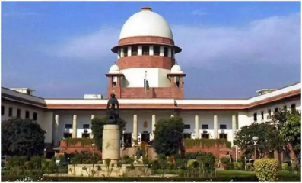The Supreme Court dismissed a plea seeking the formation of a panel to rename historical and religious places which have reportedly been named by “barbaric foreign invaders”, saying that selected part of the country’s history cannot be wiped out.
The PIL was filed by lawyer Ashwini Upadhyay who sought setting up of a ‘renaming commission’ to restore the “original” names of ancient, cultural and religious places “renamed” by invaders.
A bench of Justices KM Joseph and BV Nagarathna questioned the motive of the PIL, saying it will bring alive those issues, “which would keep the country on the boil”. The apex court also India can’t be a prisoner of the past.
“This is a fact that our country was invaded and ruled by a foreign power. We cannot wash out selected part of our history,” the bench said.
Hinduism is not religion but way of life
The SC also said that India is a secular country and that Hinduism is not a religion but a way of life, “which has assimilated everyone and there is no bigotry in it”.
The apex court said that digging up the past will only create disharmony, adding that the history of the country should not haunt its present and future generations.
Upadhyay, in his plea filed earlier this month, said that Mughal Garden was recently renamed Amrit Udyan, but the government did nothing to rename the roads named after invaders.
The PIL also contended that the continuation of these names is against the sovereignty and other civil rights guaranteed under the Constitution.
Upadhyay requested the top court to direct the Archaeological Survey of India to research and publish the initial names of ancient historical and cultural religious places, which were renamed by “barbaric foreign invaders” to secure the Right to Information under the Constitution.
“We are celebrating the 75th anniversary of independence but there are many ancient historical cultural religious places in the name of brutal foreign invaders, their servants and family members,” the advocate said in his plea.



